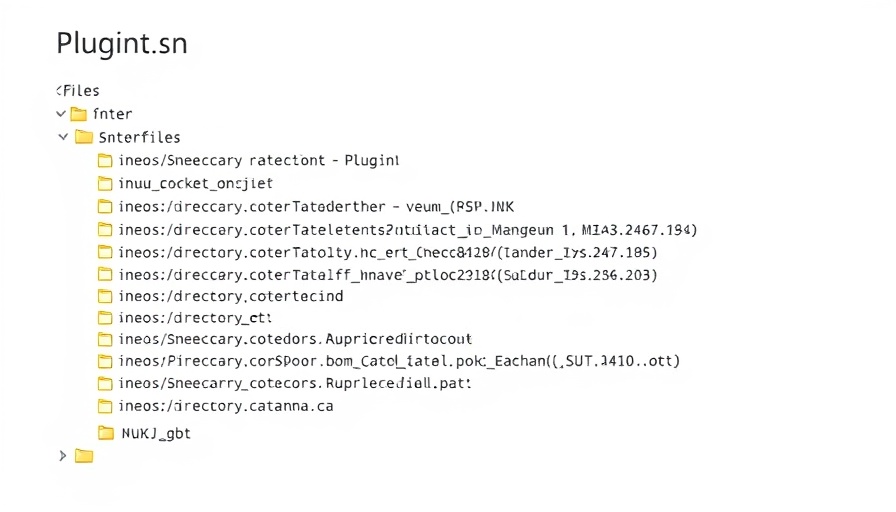
Revolutionizing AI-Assisted Coding with Claude Code Plugins
Anthropic has taken a giant leap in the realm of AI-supported programming with the launch of the plugin system for its coding assistant, Claude Code. This innovative step transforms Claude Code from a basic tool into an open, extensible platform that empowers developers with a fresh range of capabilities. With the introduction of plugins, developers can bundle and share complex customizations easily, marking a move towards creating a collaborative ecosystem that puts community-driven resources at the forefront.
The Open Marketplace Model: Decentralization at Its Best
Unlike traditional app stores dominated by a single entity, Anthropic's plugin marketplace facilitates a decentralized model where anyone can create and host their own marketplace using a simple Git repository. This approach invites a wave of innovation as developers can easily contribute their plugins, resulting in a rich hub of resources for the community. This structure echoes the ideals of open-source software, ensuring that both individual developers and enterprise teams can benefit from collective creativity.
Key Features That Enhance Developer Experience
The plugin architecture integrates several components designed to enhance efficiency and collaboration:
- Slash Commands: Developers can invoke complex functionalities by simply typing commands, making advanced features readily accessible.
- Subagents: By enabling plugins to delegate specific tasks, subagents help manage multi-step processes, allowing for smoother workflows.
- MCP Servers: These open-source standards connect AI development with external systems, enhancing accessibility and flexibility.
- Hooks: Hooks allow the injection of specialized logic into Claude Code's workflow, making it possible for developers to incorporate conditional actions.
Through these features, developers are not just using a tool but effectively enhancing their entire collaborative coding landscape.
Building Loyalty in the Competitive AI Landscape
In a market where GitHub Copilot reigns, Anthropic’s move challenges the status quo by leveraging a more open model. Developers who rely on customized plugins will find it much harder to switch to other tools, creating a significant loyalty factor. In essence, this is not merely about developing software but about constructing a robust community rooted in collaboration. As teams can create private marketplaces for managing approved tools and configurations, the barriers to entry for adopting a specialized AI workflow are lower than ever.
Anticipating Future Trends in AI and Development
The introduction of Claude Code plugins signifies the dawn of a new era in AI-led programming. Looking ahead, we can expect further advancements that enhance how developers interact with AI systems. As the community grows and more plugins emerge, issues around security, compatibility, and quality control are likely to surface. The ecosystem will need rigorous management to maintain a reliable environment where innovation can thrive without compromising security.
This innovative approach is likely to pave the way for more AI-driven tools, changing how coding challenges are tackled. Developers eager to build customized environments will find Claude Code to be an indispensable partner in their software development journey.
In conclusion, Antropic's Claude Code plugin launch opens a world of possibilities for coding professionals. By fostering a community-centric ecosystem, it encourages not only innovation but also standardization across teams. As we witness this evolution, it’s clear that the future of programming is intertwined with tools that prioritize community collaboration and flexibility.
 Add Row
Add Row  Add
Add 




Write A Comment